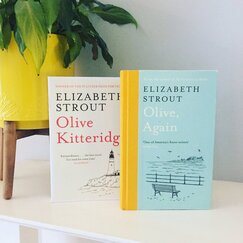
Some people approach their reading from a purely academic point of view, happy to analyse texts and critique the author, pointing out inadequacies and omissions. This approach is good for academic texts and some non-fiction books. The discussion – and even argument – can be challenging and lead us to expand and clarify our thinking. Sometimes, though, I find this can be a bit frustrating as I like to let books speak to me, to look for what they can teach me about life and human nature – and I like to share the wisdom we’ve gleaned from our reading. And sometimes, too much analytical criticism can be a smoke screen for looking beyond the story to the truth it reveals. This is especially so, I think, of fiction. Yes, fiction can be and hopefully is enjoyable, can help us escape into unfamiliar worlds and break the tedium of our everyday lives. But it can give us an insight into human relationships and the reality of the world in which we live. To see the truth contained in the story or the words is to recognise the sacred nature of a literature that many would class as secular.
I recently came across this quotation from Louise Gluck “When you read anything worth remembering, you liberate a human voice; you release into the world again a companion spirit." The power and the truth of this struck me with some force when I read it. True as it is of many writers it’s been particularly true for me during this pandemic as I’ve read my way through the novels of Elizabeth Strout. Elizabeth Strout is captivated by the idea that it’s not possible to fully know another person. The observation occurs often in her books that we can never truly know another or what they are going through. We can only really know what it is to live in our own skin. Because of this we tend to give off signals that are misunderstood, we tend to judge others by their outward behaviour and our interpretation (often wrong) of that behaviour or our expectations of them. Relationships flounder from a number of issues such as a lack of honesty, an inability to communicate, a fear of others or a sense of inferiority, an inability to face up to ourselves.
Strouts’ novels are all situated in small towns in Maine, USA and the characterisation of the residents, the relationships between them and the way their lives overlap is fascinating as well as insightful. I was so intrigued by two of her books, Olive Kitteridge and Anything is Possible that no sooner had I finished them than I turned to the first page to begin again. I’ve never done that with a book before but this time I felt there was more to be gleaned and I didn’t want to let the characters go. I’d planned to give the books away as Christmas presents but I’m not sure I’ll be able to part with them as I think I’ll be drawn to reading them again and again.
Perhaps the most famous of Strouts’ books is ‘Olive Kitteridge’ A Novel in Stories for which she won the Pulitzer Prize for Literature in 2009 and which is now a mini-series on Amazon Prime. The book takes the form of 13 short stories that are interrelated but discontinuous in terms of narrative. Each chapter gives an insight into the character of a cantankerous, rude, opinionated, inconsistent, emotionally closed woman who treats her husband and son badly, thinking there is no need to express how she feels about them – any mother loves her son so no need to show or tell him. But there is a side to Olive that her family don’t see and comes out from time to time in her encounter with former pupils and their recollections of her.
In spite of all of this there is something likeable about Olive that arouses our sympathy in spite of her prickly exterior that refuses to relax into life. Perhaps I liked her because of the stresses and strains, the inner struggles, the outward conflicts and expressions that many of us face in our journey through life, even if not so extreme. At the end of the book there is a glimmer of hope which is realised, I think, in the sequel ‘Olive Again’ which was only written last year and published in Britain last month. Thank goodness for it for the Olive we’re left with is a woman who has mellowed and come to a self-realisation that is honest and painful but which she faces up to with a courage that allows her to face old age with equanimity. Perhaps none of us could ask for more.


 RSS Feed
RSS Feed
